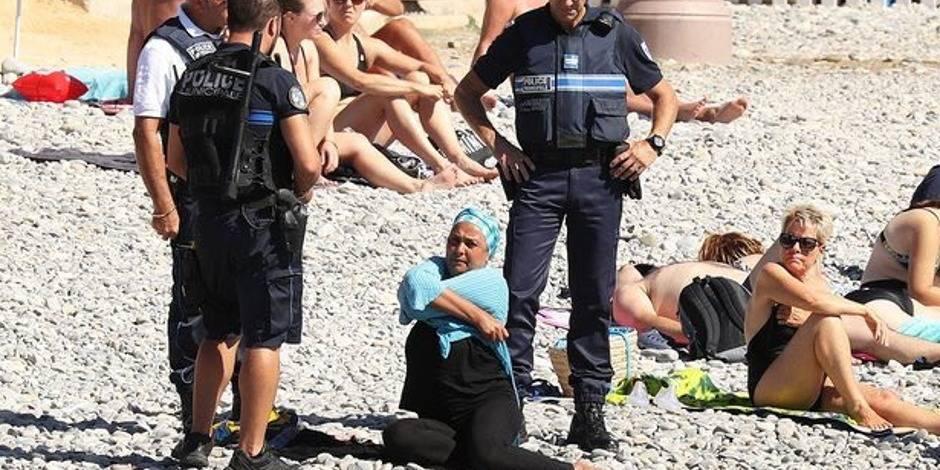Vaccination rates among Canadians of Eastern European descent cause concern
This is part of a larger trend that is causing concern in hospitals and among public health officials: vaccination rates among people of Eastern European descent are low.
According to the latest available provincial data, 26% of staff at the Ukrainian Canadian Care Center and Ivan Franko Homes, both located in Etobicoke, were not fully vaccinated as of last month. This is more than double the provincial average in the long-term care sector.
According to data released by the Ministry of Long-Term Care in early October, these homes rank among the top 10 long-term care facilities in Ontario for the highest proportion of staff not vaccinated.
CBC News asked management at both homes to provide updated statistics, but they did not respond to the request as of Monday.
Staff in all long-term care homes in Ontario must prove by November 15 that they are fully vaccinated against COVID-19 or have a valid medical exemption, failing from which he will be prohibited from working in these establishments.
Also read:
Homes serving the Lithuanian and Polish communities also have some of the highest rates of unvaccinated staff in the province. One such home, Copernicus Lodge in the Roncesvalles neighborhood of Toronto, had to suspend 36% of its staff when it imposed its own mandatory vaccination rule last month.
While public health units don't track COVID-19 vaccination statistics specifically for people of Eastern European descent, doctors are seeing signs of concern in emergency rooms.

We've definitely seen a trend, especially in the hospital and in our clinical work
, said Dr. Sumon Chakrabarti, an infectious disease specialist and lecturer at the University of Toronto, who practices in Mississauga.
Many people come from the Eastern European community, including Ukraine, Poland, the former Yugoslavia and Russia
, Dr. Chakrabarti said in an interview .
Dr. Sumon Chakrabarti claims to have heard several anecdotes that could explain the low vaccination rates in this population.
Photo: Radio-Canada / CBC News
Some public health experts and community leaders say the experience of living under totalitarian regimes in the former Soviet bloc contributes to vaccine hesitancy among the Eastern European diaspora in the Canada.
I've heard a lot of stories [of unvaccinated patients] that have very similar themes, like being forcibly vaccinated or having a general distrust of the government, and these feelings can translate here
, said Dr. Chakrabarti.
However, some leaders in the Ukrainian-Canadian community question the theory that distrust of the government is at the root of vaccine hesitancy.
We heard this from people, from leaders in our community who grew up under Soviet rule
, said Ihor Michalchyshyn, Director General of the Ukrainian Canadian Congress.
It certainly reflects the kind of relationship the Soviet government had with its citizens in terms of imposing various kinds of measures and restricting freedoms
, Michalchyshyn said in an interview. But I don't feel like it's a widespread problem at this point.
The Ukrainian Canadian Congress, which represents the approximately 1.5 million Ukrainian Canadians, has led efforts to disseminate the facts about COVID-19 vaccines in the various languages of the community.
We translated the main posters, the main documents, the main videos. [...] Television, radio, print media, we did everything we could imagine to get information into people's hands
, Michalchyshyn said.
In recent days, Ukraine has reported a record daily number of new COVID-19 infections, a phenomenon due to one of the lowest vaccination rates in Europe.
In Ontario, Long-Term Care Minister Rod Phillips acknowledged that some homes serving Eastern European communities have lower than average vaccination rates among staff.
All of these homes have taken a number of steps, some in collaboration with us, others directly involving doctors, healthcare professionals and, in one case, veterans Olympic athletes to speak to staff and communicate the value and safety of the vaccine,
Phillips told reporters Monday at Queen's Park.
All long-term care homes in Ontario are required to report their staff vaccination rates to the ministry this week, and the government will release these numbers in the second week of November.
Mr. Phillips said figures for all of Ontario as of early October showed 94 per cent of long-term care home staff had received at least one dose of the COVID-19 vaccine and 90 per cent were fully vaccinated.
With information from Mike Crawley of CBC News








